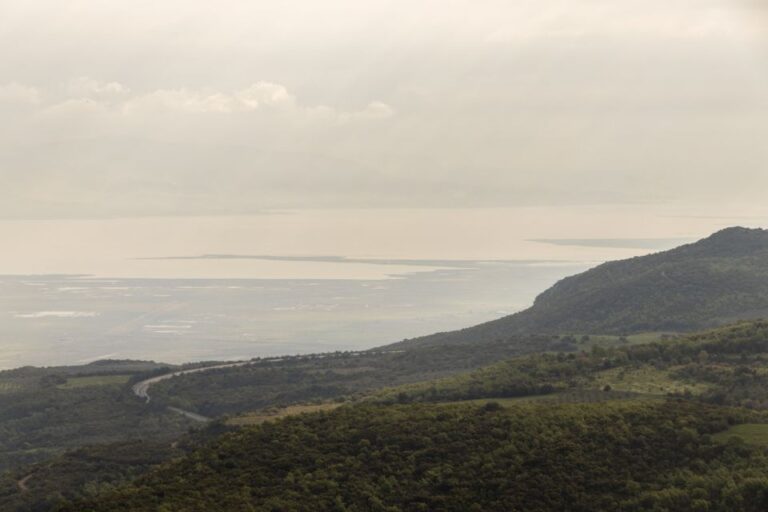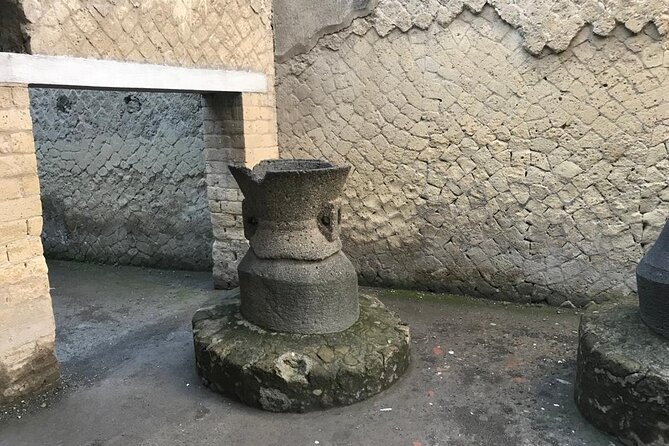Lisbon’s past as a major player in the transatlantic slave trade is a complex and often painful chapter in Portugal’s history. The 3-Hour Slave Trade Historical Walking Tour offers an intimate glimpse into this challenging legacy, guiding visitors through significant landmarks and providing unique African perspectives. With a knowledgeable guide, participants can engage with the social and economic impacts of slavery, gaining a deeper understanding of how these historical events continue to shape modern Portugal. Though the subject matter is heavy, the tour promises a meaningful and insightful journey for those seeking to confront this difficult history.
Key Points

- This 3-hour walking tour in Lisbon explores the city’s history and landmarks related to the transatlantic slave trade.
- Participants will learn about Portugal’s role in initiating the slave trade and its devastating human impact.
- The tour visits key locations associated with the slave trade, including the site of slave auctions and a church where captives were baptized.
- The tour is led by an African historian who provides unique insights into the political, economic, and social implications of Portugal’s colonial legacy.
- Participants will gain a comprehensive understanding of the slave trade’s influence on Lisbon’s history and development.
Tour Overview and Details
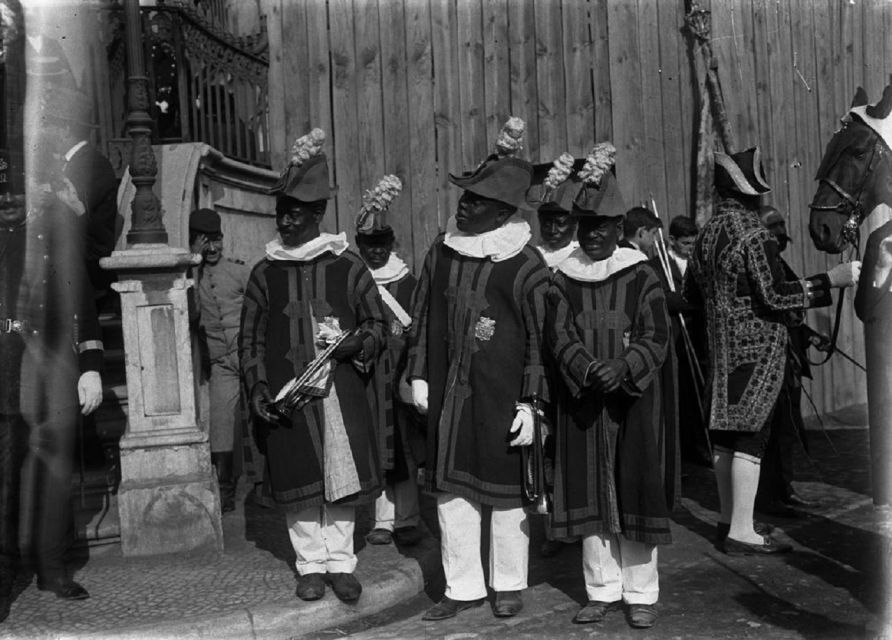
Providing an overview of the Lisbon: 3-Hour The Slave Trade – An Historical Walking Tour, the tour is priced from $32.56 per person and lasts for 3 hours, with a limited group size of up to 6 participants.
Conducted in English, the tour includes a live guide, local taxes and fees, as well as hotel pick-up and drop-off.
Travelers can cancel their booking for a full refund up to 24 hours in advance.
The meeting point is Largo do Chafariz de Dentro, where you will embark on an immersive journey exploring Lisbon’s city center and its connections to the Atlantic slave trade that profoundly shaped Portugal’s history over four centuries.
Historical Context of the Slave Trade
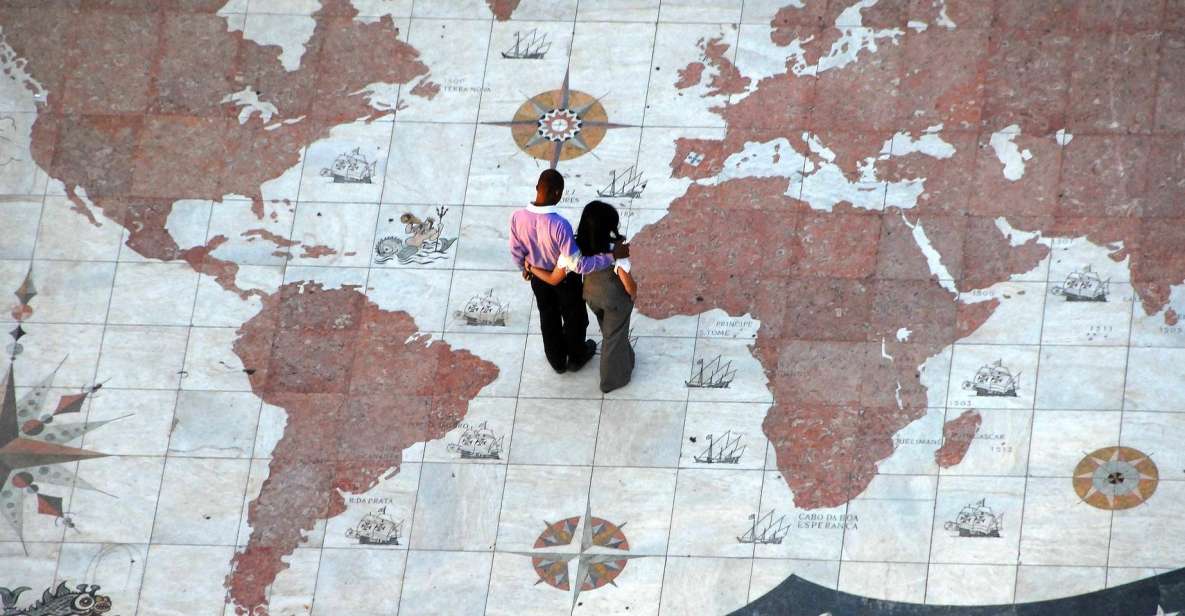
In the 15th century, Portugal, under the leadership of Prince Henry the Navigator, initiated the notorious Atlantic slave trade, which would profoundly impact the country’s development and history over the next four centuries.
Between 12 to 14 million Africans were sold into slavery and transported to the Americas during this dark period.
The trade’s impact was far-reaching:
- It fueled Portugal’s economic growth and expansion, but at a devastating human cost.
- It left a lasting legacy of racial inequality and oppression in Portugal and its former colonies.
- The abolition of the slave trade in Portugal in the 19th century was followed by African nationalists’ liberation struggles in the 20th century.
Exploring Lisbon’s Slave Trade Landmarks
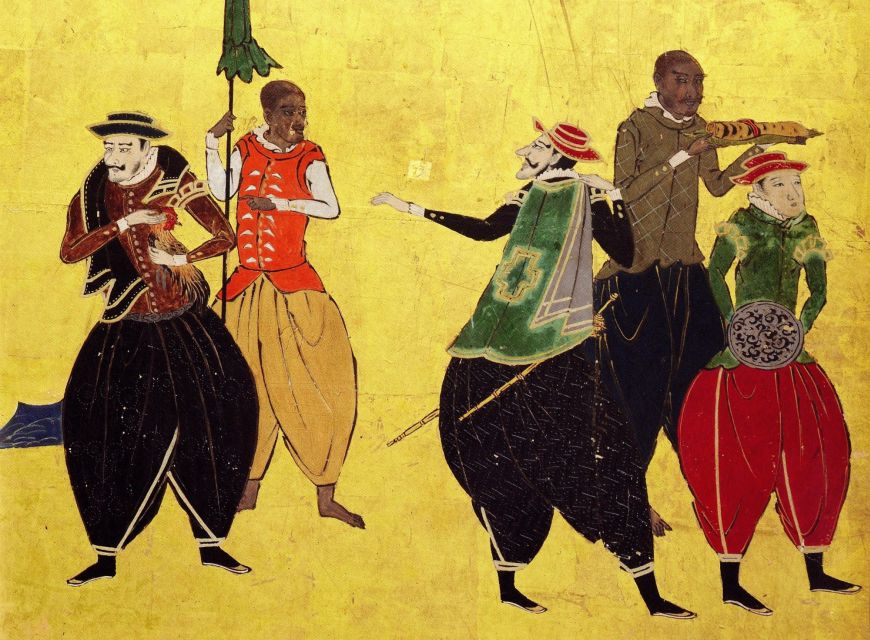
This walking tour guides visitors through Lisbon’s city center, exploring the back streets, main avenues, monuments, churches, and public squares linked to the Atlantic slave trade’s history and legacy. The tour delves into the genesis of slavery in the Iberian Peninsula, the birth of the lucrative transatlantic trade, and the profound impact it had on Portugal’s development. Participants can expect to learn about the daily life of enslaved Africans in historical Lisbon, the significance of Brazil, and the eventual abolition of the trade in Portugal. The guide also covers the Portuguese colonies in Africa and the liberation struggles of African nationalists. Through this immersive experience, visitors gain a deeper understanding of this complex and pivotal chapter in Lisbon’s past.
| Location | Significance |
|---|---|
| Largo do Chafariz de Dentro | Gathering point for slave auctions |
| Igreja de São Domingos | Church where captives were baptized |
| Praça do Comércio | Central square where slave ships docked |
| Castelo de São Jorge | Hilltop fortress with views of the slave trade |
Topics Covered in the Walking Tour
The walking tour delves into the genesis of slavery in the Iberian Peninsula, tracing the birth of the lucrative transatlantic slave trade and its profound impact on Portugal’s development over four centuries.
The guided experience covers a range of topics, including:
- The Age of Discovery and Portugal’s pivotal role in establishing the slave trade across the Atlantic.
- The daily life and experiences of slaves in historical Lisbon, shedding light on their harsh realities.
- The significance of Brazil and Portugal’s colonial empire in the slave trade, as well as the eventual abolition of the practice and the subsequent struggles for African nationalists’ liberation.
Throughout the tour, the guide provides insights and historical context, ensuring participants gain a deeper understanding of this crucial, yet often overlooked, aspect of Lisbon’s past.
Participant Experience and Recommendations
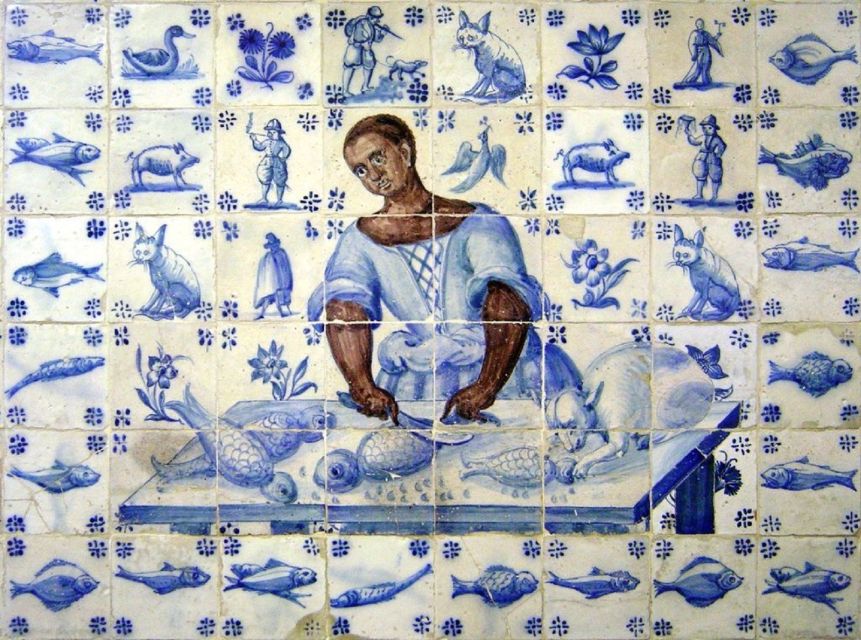
Participants can expect a personalized and engaging experience on this historical walking tour, with the opportunity to ask the knowledgeable guide questions about Lisbon and receive insider tips on navigating the city’s public transportation and top attractions.
To ensure comfort throughout the three-hour journey, the tour includes a coffee break and a restroom stop. Given the walking and hilly terrain, the tour operator recommends wearing comfortable shoes.
Customer Ratings and Feedback
Overwhelmingly positive reviews underscore the tour’s exceptional value and the guide’s outstanding expertise, with an overall rating of 5 out of 5 stars based on 100 customer evaluations.
The guide’s deep knowledge and engaging storytelling have impressed participants, earning a 5/5 rating. Reviewers also highlight the tour’s excellent value for money, with a 4.9/5 rating in this category.
As one customer remarked, ‘This tour provides an invaluable look into Lisbon’s history that’s often overlooked. The guide’s passion and expertise made it a truly memorable experience.’
- Exceptional guide rating of 5/5
- Excellent value for money at 4.9/5
- Highly informative and memorable experience
Significance of Understanding Slave Trade History
Exploring Lisbon’s slave trade history provides an invaluable opportunity to confront a dark yet formative chapter in Portugal’s past, one that profoundly shaped the nation’s development and continues to resonate today. Understanding this complex history is crucial, as it sheds light on the lasting social, economic, and cultural impacts of the transatlantic slave trade. Through this walking tour, participants can engage with the realities of the slave experience, the Portuguese colonial legacy, and the ongoing legacies of slavery that continue to shape modern Portugal. By reckoning with this history, visitors can cultivate a deeper appreciation for the diversity and complexities that define Lisbon and its people.
| Impact | Economic | Social | Cultural | Political |
|---|---|---|---|---|
| Wealth Generation | Plantation Agriculture | Racial Hierarchies | Architectural Influences | Colonial Expansionism |
| Infrastructure Development | Commodities Trade | Migration Patterns | Religious Syncretism | Nationalist Movements |
| Technological Innovations | Labor Market Imbalances | Demographic Shifts | Linguistic Exchanges | Decolonization Struggles |
| Maritime Advancements | Taxation and Revenue | Class Stratification | Artistic Expressions | Postcolonial Legacies |
| Urbanization Trends | Wealth Concentration | Gender Dynamics | Culinary Traditions | Human Rights Advocacy |
Guided by an African Historian
The tour’s African guide, with a background in history, political science, and economics, offers participants a unique perspective on Lisbon’s complex slave trade legacy. By sharing their expertise and personal connections, the guide provides an engaging, insightful, and thought-provoking exploration of this pivotal period in Portuguese history.
The guide’s deep understanding of the political, economic, and social implications of the slave trade adds invaluable context to the tour.
Participants gain a nuanced, first-hand account of how this history has shaped Portugal and its relationship with Africa.
The guide’s ability to navigate the sensitive and complex nature of this topic ensures a meaningful and impactful learning experience for all.
Frequently Asked Questions
How Physically Strenuous Is the Tour for Participants?
The tour is moderately strenuous, requiring participants to walk and navigate hilly terrain for 3 hours. Comfortable shoes are recommended to handle the physical demands. The experience is manageable for most able-bodied individuals.
What Types of Visuals or Multimedia Are Used During the Tour?
The tour doesn’t use any visuals or multimedia. It’s a walking tour focused on exploring historical sites and learning from the guide’s expertise. Participants experience the city through their senses and the guide’s narratives about Lisbon’s slave trade history.
Are There Any Safety Precautions for the Walking Tour?
The walking tour involves exploring the city, so participants should wear comfortable shoes and stay alert to their surroundings. The guide will point out any potential hazards and provide instructions to ensure everyone’s safety during the tour.
Can the Tour Accommodate Participants With Mobility Challenges?
The walking tour may accommodate participants with mobility challenges, depending on their specific needs. While the hilly terrain can be challenging, the tour provider may offer alternatives or assistance to ensure an inclusive experience for all guests.
What Measures Are in Place to Ensure a Respectful and Inclusive Experience?
The walking tour aims to create a respectful and inclusive experience by limiting group size, providing an African guide with relevant expertise, and including breaks for participants. Safety and sensitivity are prioritized throughout the tour.
Recap
This intimate 3-hour walking tour provides a poignant and impactful exploration of Portugal’s complex history with the transatlantic slave trade.
Led by an African guide, participants engage with the lasting legacies of colonialism while visiting significant landmarks in Lisbon.
The tour offers unique insights, promoting a deeper understanding of the social and economic impacts of slavery in modern Portugal.
It’s a meaningful journey that sheds light on this critical chapter of history.

